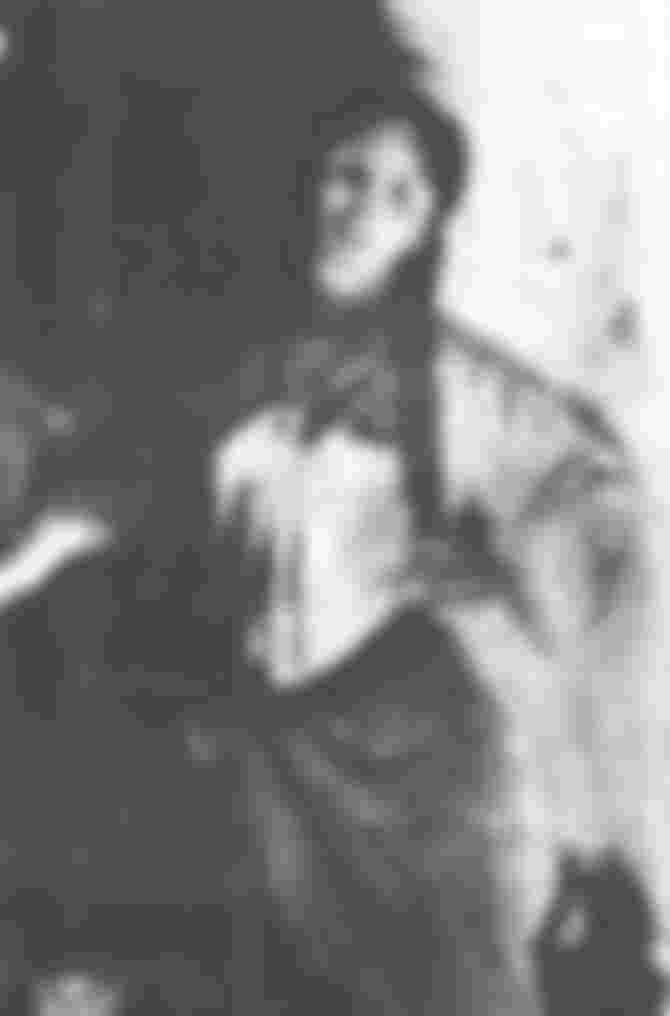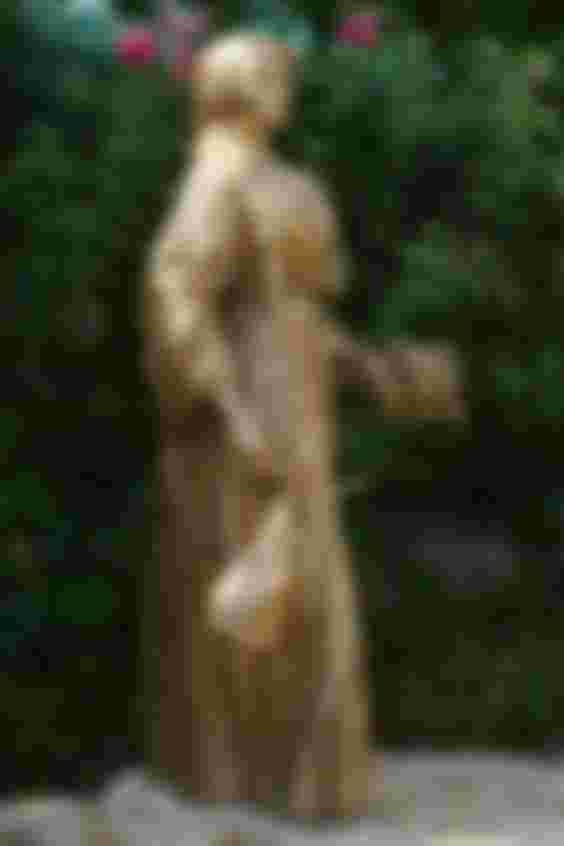When I listen to the cult song Emina, I believe that the Serbian poet Aleksa Santic loved the girl Emina very much. Unhappy love.

authentic photo of Emina
Aleksa Santic died of tuberculosis in Mostar on February 2, 1924. When it was heard about his death, "Mostar was all black." All shops were closed, and the people headed towards Ćorović's house, to pay their last respects to "the greatest poet in heart and soul".
As the procession passed through the city, the call to prayer in the mosques and church bells were heard!

At the Port Bridge in Mostar stands a monument to Emina Sefić-Koluder, a girl who is said to have been the poet's real inspiration for writing the poem. Emina Sefić-Koluder was born in 1884 to a Bosniak family in Mostar, and Aleksa Šantić was her family's first neighbor.

Emina
Last night, returning from the warm hamam
I passed by the garden of the old Imam
And lo, in the garden, in the shade of a jasmine,
There with a pitcher in her hand stood Emina.
What beauty! By iman I could swear,
She would not be ashamed if she were at the sultan’s!
And the way she walks and her shoulders move...
-- Not even an Imam’s amulet could help me!
I offered her salaam, but by my din,
Beautiful Emina would not even hear it.
Instead, scooping water in her silver pitcher,
Around the garden she went to water the roses.
A wind blew from the branches down her lovely shoulders
Unraveling those thick braids of hers.
Her hair gave off a scent of blue hyacinths,
Making me giddy and confused!
I nearly stumbled, I swear by my faith,
But beautiful Emina did not come to me.
She only gave me a frowning look,
Not caring, the naughty one, that I am crazy for her!
The old poet has died, Emina has died
The empty garden of jasmine was left behind
The pitcher is broken
The flowers have withered
The song about Emina, will never die.



Ovu pesmu sam doooobro zapamtila,ucili smo je u prvoj godini srednje.Santiceve pesme su predobre,emotivne,dok ih citas,slusas,kao da si vec u tom vremenu.